Diary Chapters
Live a green life
Wise Words
Green classrooms are fun to learn in and make a difference to our planet. How green is your class?
Every day we make choices about how
we live. These little choices have an impact on our environment and
others around us. Find out how you can walk more gently on our
earth.
How can you change from being a BIG
FOOT to a LITTLE FOOT?
SIMPLE STEPS AT
SCHOOL
- Travel smart: catch public transport, walk,
ride your bike or carpool with your neighbours
- Waste not: collect lunch scraps for a worm
farm or compost bin
- Re-use, recycle: use only what you need, reuse
materials for craft work and recycle
- Join up: start an environmental group and make
an action plan for bigger projects
- Eat healthy: take fresh fruit and homemade
goodies for lunch in reusable containers instead of snacks in
separate packaging
- Water watch: turn off the tap when you're not
using it
- Blog it: make a blog and share your simple
Steps with others to show it easy it can be to make a
difference!
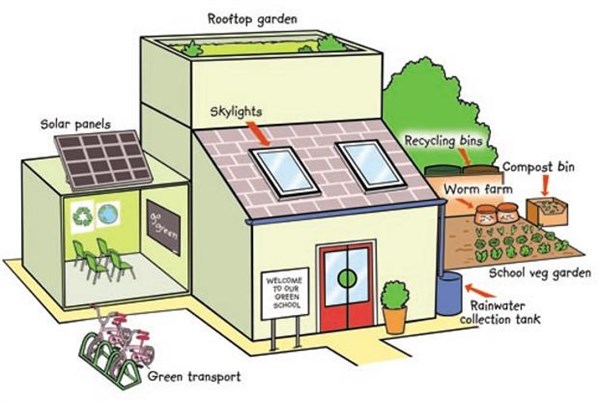
There are lots of ways to help your school reduce its ecological
footprint. Check these out:
|
Does your school use the GreenStar
Education rating tool to find out how green their buildings
are?
Find out at www.gbca.org.au.
|
WORLD FOOD DAY!
Family farming is the focus of World Food Day on October 16
2014!
- The United Nations is raising the profile of family farming and
smallholder farmers.
- It focuses world attention on the significant role of family
farming in overcoming hunger and poverty, providing nutrition for
kids around the world and protecting the environment.
- The focus is especially on family farming in rural areas - but
your backyard is the perfect place to start, wherever you
live!
Find out more and enter the poster competition here: United Nations
World Food Day!
Enter the poster competition here: Enter
your design!
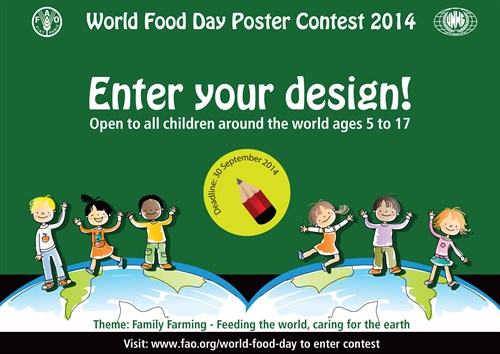
SIMPLE STEPS AT HOME
- Grow your own: start your own vege patch, herb
garden or chicken coop - you'll have fresh vegetables, herbs and
organic, free-range eggs in no time!
- No plastic bags: take your own bags and say NO
to plastic bags
- Buy local: go to the local farm or markets to
buy your fruit, vegetables, meat and bread
- Good neighbours: share the harvest from your
vege patch, car-pool to school, or just enjoy each other's company
with a backyard BBQ.
Find out here all the information you
will need!
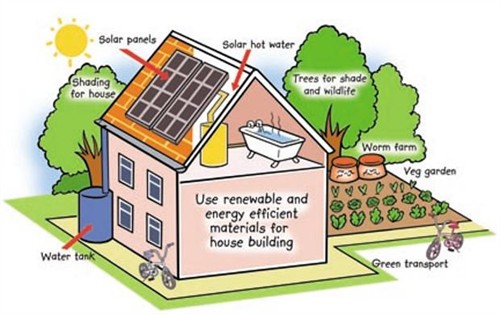
Grow your own food. Try planting some herbs and veggies in a pot
and starting your own garden. It's fun and you can have your own
lettuce in your sandwiches at school!
The average family car emits 4 tonnes of greenhouse gases every
year. 1,200 trees need to be planted to offset those emissions.
Learn how you can be more sustainable with cars by reading this blog!
GREEN LANE HERO STORIES
St Brendans Primary, Moorooka
These amazing students in Mrs Crawford's class have spent
the term keeping their diary and leading the way to show others
that living green is easy. Every student's diary was jammed packed
with amazing ideas, personal insights and practical solutions that
they tried to live each day.
Mildura West Primary School, VIC
This school has been busy running a Walking Bus to reduce
car traffic, creating stickers to help kids recycle and writing
Bird Fact Files to promote local species. Their Rubbish Free Trophy
is hotly contested by all classes each week.
Eat less animal proteins to reduce carbon and methane emissions.
Maybe try starting a Peanut Butter and Jelly campaign!
Dig a hole and bury an apple, a tea bag, plastic bottle and
anything else you'd like. Keep a 'decompose diary' to find
out how fast everything decomposes. Some things will take
years to breakdown! Imagine what our tips are like.
FOOD MILES!
Some things you have in your home have travelled a long way to
get to you. Things that travel great distances have used more
energy being transported. The grapes you eat for lunch might have
put lots of greenhouse gas into the atmosphere because they had to
come all the way from the US. It's much better for the
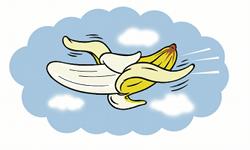
planet to buy products that come from close to home or even grow
it yourself in a garden just like they do here!
Don't forget to do your own research and see what other people
think!
What can you do?
- Eat food that is in season
- Shop at the local markets and buy from farmers who grow things
nearby
- Check the labels and buy Australian products
- Make your own list of foods with Friendly Food Miles. Publish the list
in your school newsletter or on your school's website.
- Help celebrate World Food Day and promote
Food cooperatives
|
LAW OF THE LABEL
It's now even easier to keep our Earth in balance. New labelling
on food items, beauty and cleaning products helps us to choose
what's best for the environment and our health, and offers a fair
go for people all around the world.
The only tricky thing is that so many businesses want an
eco-label on their product to help make it more appealing even
though the product may not deserve it. To help track the eco-label
expansion, the eco-label index has been set up. You can check it
out here!
What labels have you noticed
on the supermarket shelves?
|
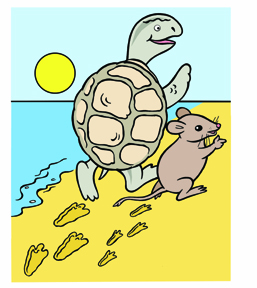
WATER WISE
In Australia, we're lucky to have steady supplies of clean
water. Still we join with the rest of the world in spending more
than $100 BILLION on bottled water every year. Our water situation
would be very different if we were living in a country like Ghana,
where supplies of clean, fresh water are hard to come by.
Thanks to the students of St Brendan's Primary
School in Moorooka, Queensland for raising money for the
children from Dawu Methodist Primary and Junior High School in East
Ghana! The money raised was used to install water tanks and toilets
for their fellow students in Ghana.
See how much of a water saving champion you can be by playing Water Use It Wisely game!!
Stuff to Check Out
FAIR TRADE
In some countries around the world, farmers are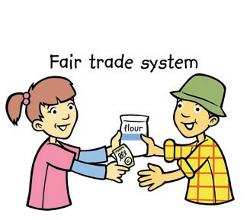
paid a very small amount of money to produce
goods, but there is a HUGE profit margin when
the goods are sold around the world. The
FAIR TRADE logo ensures that the people
who
made the product receive a decent wage and
fair working conditions.
FISHY GOODNESS
Make sure that the fish or seafood
you're buying is caughtor farmed in a sustainable way. The Marine 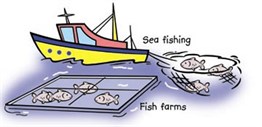 Stewardship Council runs a certification
program, which assesses whether a fishery is well managed and
sustainable. Look out for the MSC ecolabel! Even kids are
coming up with fantastic green seafood guides!
Stewardship Council runs a certification
program, which assesses whether a fishery is well managed and
sustainable. Look out for the MSC ecolabel! Even kids are
coming up with fantastic green seafood guides!

UNPLUG FOR A
WHILE!
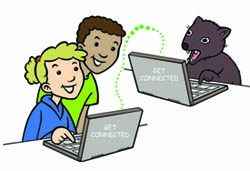
Everyone these days seems to have a Nintendo,
an iPod or an Xbox but electronic games are only a recent
invention. Before that - believe it or not - kids had fun without
electronic gadgets!
How did they survive? They spent time outside, building cubbies,
exploring, playing games and sports and learning more about the
world around them. Being outdoors keeps us strong and healthy and
teaches us how our bodies work - especially when we're climbing
trees! When we play in nature, we learn about plants and animals
and learn what it feels like to be connected with our planet. So go
on, get outside and play!
POPULAR PETS
Pets are fantastic - they're fun to play with, they cheer us up
when we're sad and when we care for our pets, we're learning how to
take care of the world around us.
How to care for your pet:
1. Give your pet food and water regularly
2. Clean up after your pet
3. Spend time with your pet - take it for a walk!
4. Prepare a pet emergency evacuation plan.